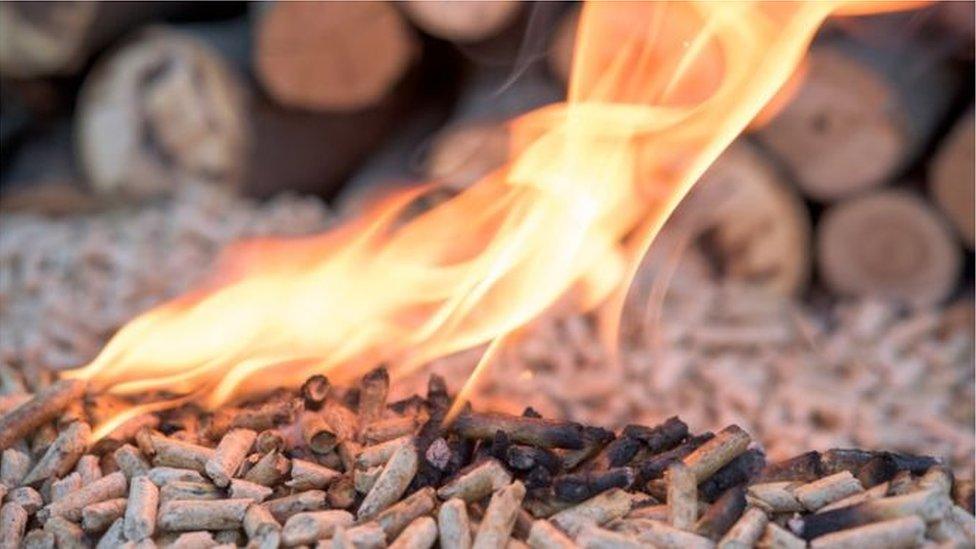RHI scandal: Ulster farmers asked for tariff cuts delay
- Published

The Ulster Farmers' Union requested a "grace period" on cuts to RHI payment rates
The BBC has seen emails showing farmers urged government officials for a delay in cutting payment rates in a flawed energy scheme.
It came at a point in 2015 when officials knew they needed to stop the Renewable Heat Incentive draining cash.
The Ulster Farmers' Union requested a "grace period" on cuts as members were awaiting planning consent for poultry sheds to be heated under RHI.
The UFU defended the emails, which were sent to the enterprise department.
The aim of RHI was to increase the creation of heat from renewable sources, but businesses received more in subsidies than they paid for fuel, and the scheme became heavily oversubscribed.
The fallout from the scandal, which is approximately £490m over budget, resulted in the collapse of Stormont's institutions and the calling of snap elections on 2 March.
Businesses in jeopardy?
In July 2015 officials in the Department of Enterprise, Trade and Investment (Deti) were sent an email by Tom Forgrave, a member of the UFU's poultry committee, who also represents suppliers to Moy Park.
He said some farmers had bank loans of up to £1m for expansions which were still subject to planning approval.
He said businesses could be in jeopardy if planning consent came after a change in tariffs.
He suggested that rather than changing the tariffs on 1 October 2015, as indicated by Deti, this should wait until 1 January 2016.
But the official wrote back: "I'm not buying this."
Mr Forgrave then got the backing of the UFU's senior policy officer, Christopher Osborne, who also emailed Deti calling for a grace period.
A different official responded: "The potential for a grace period is a difficult one given that we are currently over budget and this position needs to be addressed urgently.
"That said we are of course understanding of people who have already made commitments and we will do what we can to assist those in this position so that they are not disadvantaged."
The former Deti minister Jonathan Bell has previously said he wanted to cut tariffs on 1 October 2015, but interference by DUP special advisors delayed this until November 17.
In a statement on behalf of itself and Mr Forgrave, the UFU said it dealt only with civil servants.
"We did not meet politicians or their special advisors to discuss our concerns," said the statement.
The statement said it would have been "unfair" to change tariffs before some farmers had completed planned installations.
A spokesperson for Moy Park said Mr Forgrave was a member of a group which only represents the interests of farmers and was separate from the company.